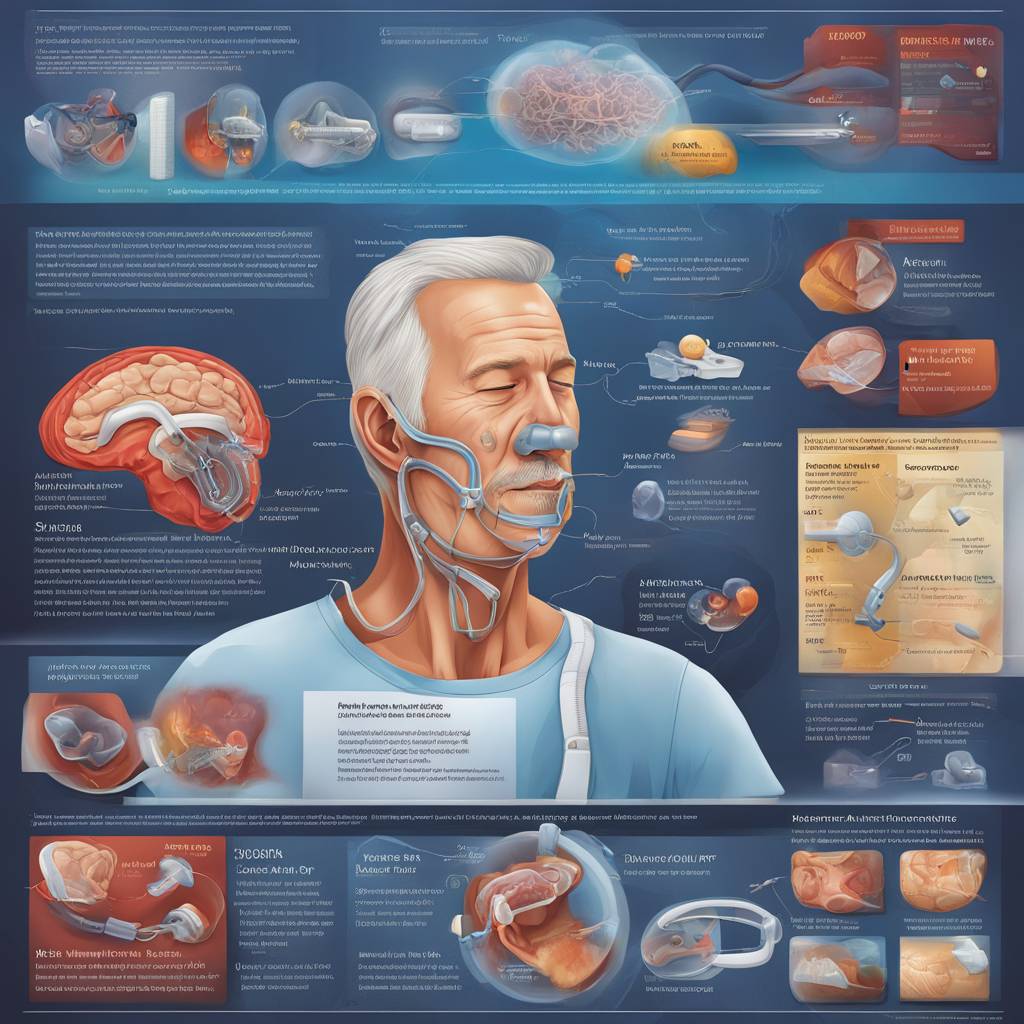Sleep apnea is a common medical condition that causes your breathing to stop and start continuously while you sleep. It is associated with a higher risk of type 2 diabetes, heart attacks, and memory issues. There are different types of sleep apnea, including obstructive sleep apnea and central sleep apnea, each with its own causes and symptoms. Obstructive sleep apnea restricts air from getting through your throat, while central sleep apnea is triggered by a miscommunication between your brain and breathing muscles. Both types can have serious health implications if left untreated.
Symptoms of sleep apnea include loud snoring, interrupted breathing during sleep, gasping, choking or snorting, feeling tired during the day, waking up with a dry mouth, frequent trips to the bathroom at night, impaired focus, and irritability. These symptoms can affect your daily life and increase your risk of various health issues. Untreated sleep apnea can lead to cardiovascular problems, excessive fatigue, type 2 diabetes, and liver issues. It is essential to identify the warning signs of sleep apnea and seek treatment to prevent further health complications.
Several risk factors influence the likelihood of developing sleep apnea, including age, gender, medical conditions, weight, family history, and lifestyle habits like drinking and smoking. Older individuals and men have a higher risk of developing sleep apnea, as well as individuals with certain health conditions or those who are overweight. Family history and lifestyle choices can also contribute to the development of the disorder. It is important to be aware of these risk factors and take steps to address them to reduce your chances of developing sleep apnea.
Treatment options for sleep apnea include continuous positive airway pressure (CPAP) machines, bilevel-positive airway pressure (BiPAP) machines, and adaptive servo-ventilation (ASV) machines. These devices help keep the airways open during sleep, allowing for better breathing. In some cases, at-home sleep devices may be prescribed for those at risk for obstructive sleep apnea. These devices monitor breathing patterns and blood oxygen levels but may not provide as much data as a traditional sleep study. It is important to work with your doctor to determine the best treatment plan for your specific type of sleep apnea.
One new treatment option for sleep apnea is Inspire, a nerve-stimulation device that helps keep the airway open during sleep. This treatment is suitable for individuals with moderate to severe obstructive sleep apnea who have not responded well to CPAP therapy. Inspire is implanted during a surgical procedure, and it works by stimulating the hypoglossal nerve to prevent airway obstructions. This innovative treatment can provide relief for individuals struggling with sleep apnea and improve their quality of life. It is essential to discuss the benefits and potential risks of Inspire with your healthcare provider to determine if it is the right option for you.


